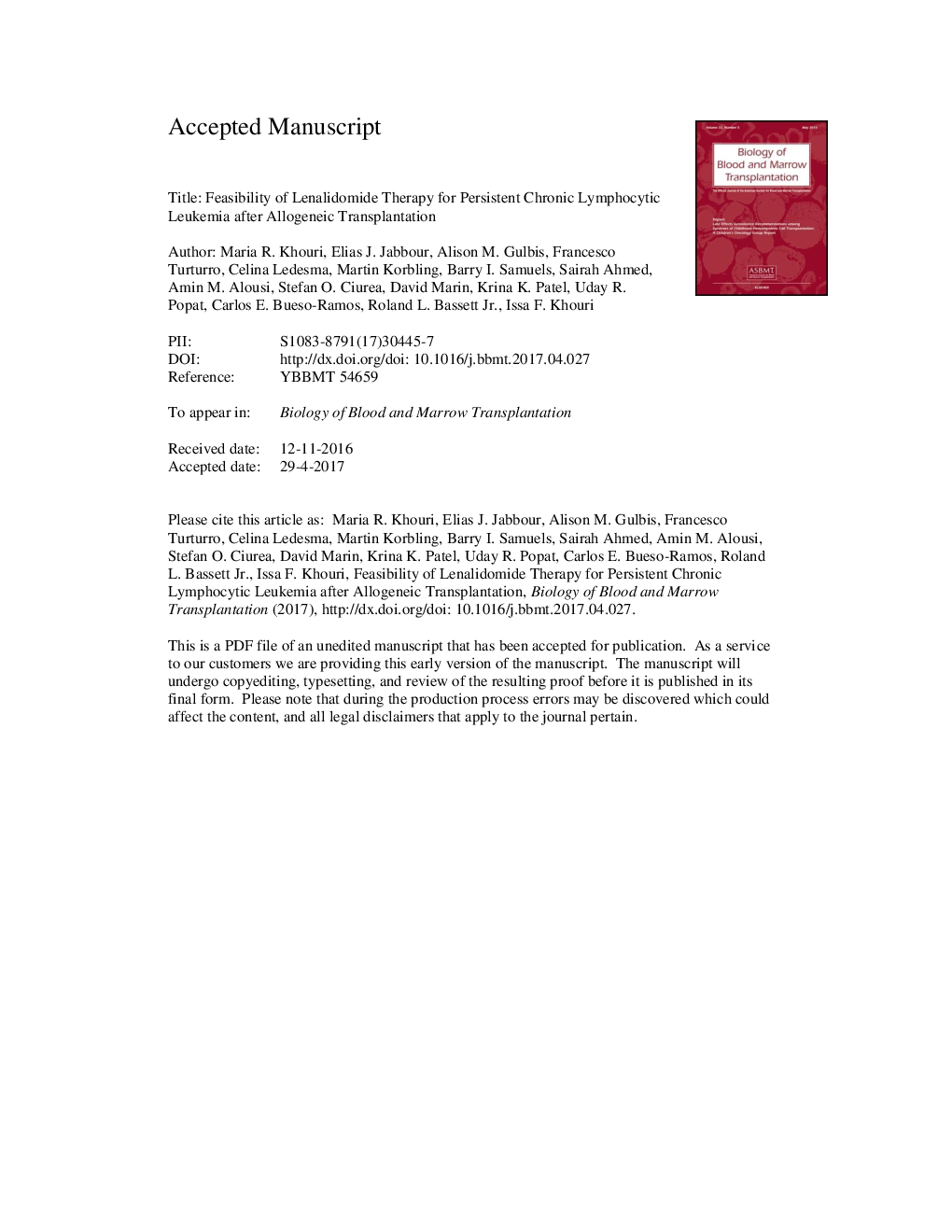| Article ID | Journal | Published Year | Pages | File Type |
|---|---|---|---|---|
| 5524129 | Biology of Blood and Marrow Transplantation | 2017 | 24 Pages |
Abstract
In patients with chronic lymphocytic leukemia (CLL), persistence of disease after allogeneic stem cell transplantation (alloSCT) can result in poor outcomes. In an effort to improve these outcomes, patients with persistent CLL who were 90 to 100 days beyond alloSCT with no evidence of graft-versus-host-disease (GVHD) were randomized to receive lenalidomide or standard care (withdrawal of immunosuppression followed by donor lymphocyte infusion). Lenalidomide was initiated at 5âmg every other day and increased to 10âmg daily, if tolerated, in each patient. Of 38 patients enrolled, 17 (45%) met the eligibility criteria for randomization. Of these 17 patients, 8 were randomized to undergo lenalidomide therapy. Five (62%) patients had to stop taking the drug because of toxicity. The main reason for drug discontinuation was acute GVHD in 43% of patients. This incidence was 11% in the patients who were randomized to not receive lenalidomide. With a median follow-up of 2.6 years, the median survival was 3.4 years for those receiving lenalidomide. This was not reached in patients randomized to not receive lenalidomide and in patients in complete remission who were not randomized. These results suggested that treatments other than lenalidomide are needed for persistent CLL after alloSCT.
Related Topics
Life Sciences
Biochemistry, Genetics and Molecular Biology
Cancer Research
Authors
Maria R. Khouri, Elias J. Jabbour, Alison M. Gulbis, Francesco Turturro, Celina Ledesma, Martin Korbling, Barry I. Samuels, Sairah Ahmed, Amin M. Alousi, Stefan O. Ciurea, David Marin, Krina K. Patel, Uday R. Popat, Carlos E. Bueso-Ramos, Roland L. Jr,
